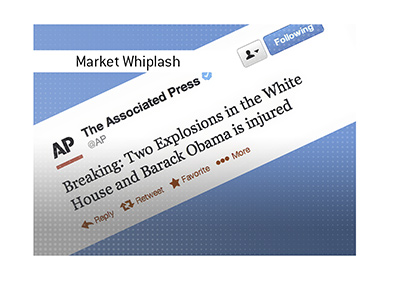Financial Times Claims That Archegos Capital Lost $110 Billion in Five Days
 Earlier today, the Financial Times revealed that Archegos Capital, the "home office" hedge fund owned by Bill Hwang, lost an unbelievable $110 billion in just five days.
Earlier today, the Financial Times revealed that Archegos Capital, the "home office" hedge fund owned by Bill Hwang, lost an unbelievable $110 billion in just five days. In addition to blowing themselves up, Archegos Capital helped to cause a number of the banks that they were dealing with to post sizeable losses as well.
So how did a hedge fund that reportedly had somewhere in the neighbourhood of $20 billion in actual assets lose $110 billion and blow up so quickly?
-
To start, you need to understand how Archegos Capital was betting on stocks.
Instead of purchasing shares of stocks in companies like ViacomCBS and Baidu, Archegos Capital was entering into equity swaps with numerous different banks and investment banks.
By doing this, Archegos Capital never actually owned shares of the underlying stock. By conducting these swaps with different banks, Archegos Capital was able to leverage themselves by as much as 500%, which would prove to be their undoing.
An equity swap might look like this:
Bill Hwang calls up Goldman Sachs and says that he wishes to purchase $1 billion of equity swaps on ViacomCBS. The two sides agree to an amount of collateral that Hwang will post, as well as predetermined payment interviews and a specified duration for the swaps.
By entering into this swap, Hwang will benefit (or lose money) from the rise (or fall) of ViacomCBS shares.
In exchange, Hwang will agree to pay an amount to Goldman Sachs, usually in the form of LIBOR plus a percentage.
So let's say that the two sides agree to this swap for a period of one year. Hwang will pay 6% annual to Goldman Sachs, and Hwang will enjoy the gains or losses of $1 billion worth of ViacomCBS stock.
Every three months, the two sides will "settle up".
Now, let's say that Hwang goes to multiple banks, who are all eager to do business with him.
By only posting collateral for the swaps, and by not actually buying the shares of ViacomCBS, Hwang is able to leverage himself immensely.
So, at his peak, Hwang had maybe $20 billion in total assets, though controlled over $100 billion in equities using these swaps, or "Contract for Difference" (CFDs).
-
So what happens when the stocks that Hwang has these swaps on suddenly drop? The investment banks and brokers that Hwang is dealing with will ask for more collateral to be posted - otherwise known as a "margin call".
What happens when Hwang doesn't have any more collateral to post, as he is already so leveraged?
By not posting collateral when asked, Hwang violated the terms of the swaps. Brokers were now able to act Hwang to immediately "settle up" and pay them what was owed. Hwang didn't have this money as he was so leveraged already.
According to reports, Hwang organized a conference call in which he asked brokers not to sell the shares that were underpinning the swaps, as he was hoping for things to bounce back.
Some brokers waited, while others began selling immediately. These brokers could then ask for the money that was owed from Hwang, as he violated the terms of the swaps. Therefore they were able to immediately ask for what was owed after selling the shares that underpinned the swaps.
By acting fast, these brokers were able to minimize losses, as they were able to keep Hwang's collateral and not suffer too much from the loss of the underlying shares, which they technically owned.
Other brokers waited, and their losses were much steeper.
-
This situation will surely bring some changes to the industry, especially when it comes to disclosing swaps.
Filed under: General Knowledge



